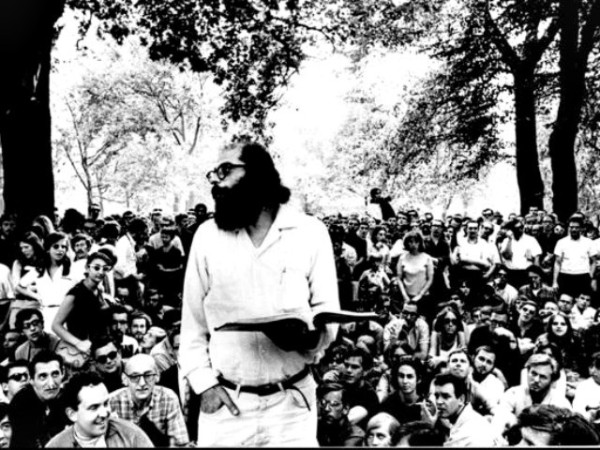Is the sky falling? Do conservatives think it is? I’ve been pondering these questions since Prof. Seth Cotlar asked about them recently in a tweet. When it comes to schools in twentieth-century America, if I had to pick one word (okay, two) to capture the heart and soul of conservatism, I’d pick “common sense” over “decline.”
 Prof. Cotlar wondered,
Prof. Cotlar wondered,
According to every conservative since Burke, has ‘the west’ ever not been declining?
The question and several answers made me wonder about the specific tradition of educational conservatism. By and large, my research convinces me to side with Prof. Corey Robin, who pointed out that there has also been
An optimism, if you will, at the heart of the right.
When it comes to education and schools, certainly, the educational conservatives I studied were extremely optimistic or at least hopeful that they could reassert sensible control over their local public schools. Failing that, educational conservatives have generally been confident that they could open and operate their own schools, schools in which the terrible trends of progressive education and politics could be removed.
Over and over, conservatives have built their campaigns on a deep and abiding optimism that their beliefs were merely common sense. Yes, conservative activists have often asserted, duped or devious progressives may have taken schools in terrible directions, but by and large conservatives insisted that their ideas were the true middle, the obvious common-sense educational program.
In the 1970s, for example, in the textbook controversy that engulfed Kanawha County, West Virginia, conservative pundit Elmer Fike didn’t quote Spengler or Burke or Burnham. Rather, he insisted that conservatism was the side of mainstream common sense. It was overreaching progressive bullies who had abandoned the center. For proof, Fike turned to the National Education Association’s 1918 Cardinal Principles report. In a full-page ad in a Charleston newspaper, Fike made the following claims:
We believe that the legitimate purpose of education is to promote the widely accepted Seven Cardinal Principles—command of fundamental processes (the three R’s), health, worthy home membership, vocational preparation, civic education, leisure time activities, and ethical character. We believe that many of the controversial texts fail to promote these principles. Rather, they tend to undermine the ethical character and social values of home and community accepted by a large majority of the people.
We believe that the continued use of these controversial books will result in antisocial behavior, further deterioration of social standards, increase in crime, and delinquency.
We believe that these books do not promote, in fact, are an attack on, the American system that has made this country the envy of the world.
While we abhor violence and shun demonstrations, we believe that the affect of these books is of sufficient consequence to warrant the use of any and all available legal means to have them removed.
Or consider the plans and prophecies of California’s Max Rafferty. Rafferty was a one-time State Superintendent of California’s public schools and a popular syndicated columnist.

…he didn’t win.
He wrote in 1970 that his “California philosophy . . . has Deweyism in nationwide retreat.” It could be so successful, Rafferty insisted time and time again, because it was built on common sense about the true nature of education. Progressives simply misunderstood humans. It was conservatives who knew what to do. As Rafferty wrote in 1964,
Too many instructors, fresh from college and still pretty Dewey-eyed about things, compromise themselves and their careers in a hopeless attempt to convince some freckled-faced [sic] urchin with devilment coming out visibly all over him that he must discipline himself when all he really needs is a session after school with the ruler.
In the 1980s, too, Reagan’s second ed secretary William Bennett pushed his reforms as mere common sense. Though voters may think that education is controversial, Bennett liked to say, there was in fact “an American consensus” about what school should look like. Bennett specifically rejected pessimistic thinking, or, at least, he tried to stick progressives with the Chicken-Little label. As Bennett wrote in 1988,
Apocalyptic analyses and Chicken Little stories about an onrushing wave of ‘unteachable’ students should be rejected. In fact, the analyses and stories themselves—and the attitudes they reveal—belong at the top of any short list of real problems now facing American education. [Emphasis in original.]
For Bennett, as for Fike, Rafferty, and a host of other conservative educational activists in the twentieth century, hope sprang eternal. Yes, schools may be in bad shape, ideologically. But in every decade, conservative pundits and parents rallied around the notion that their ideas represented beleaguered common sense.
How bout it? If you had to pick one word (or phrase) to capture the essence of conservative thinking, what would you use?
















